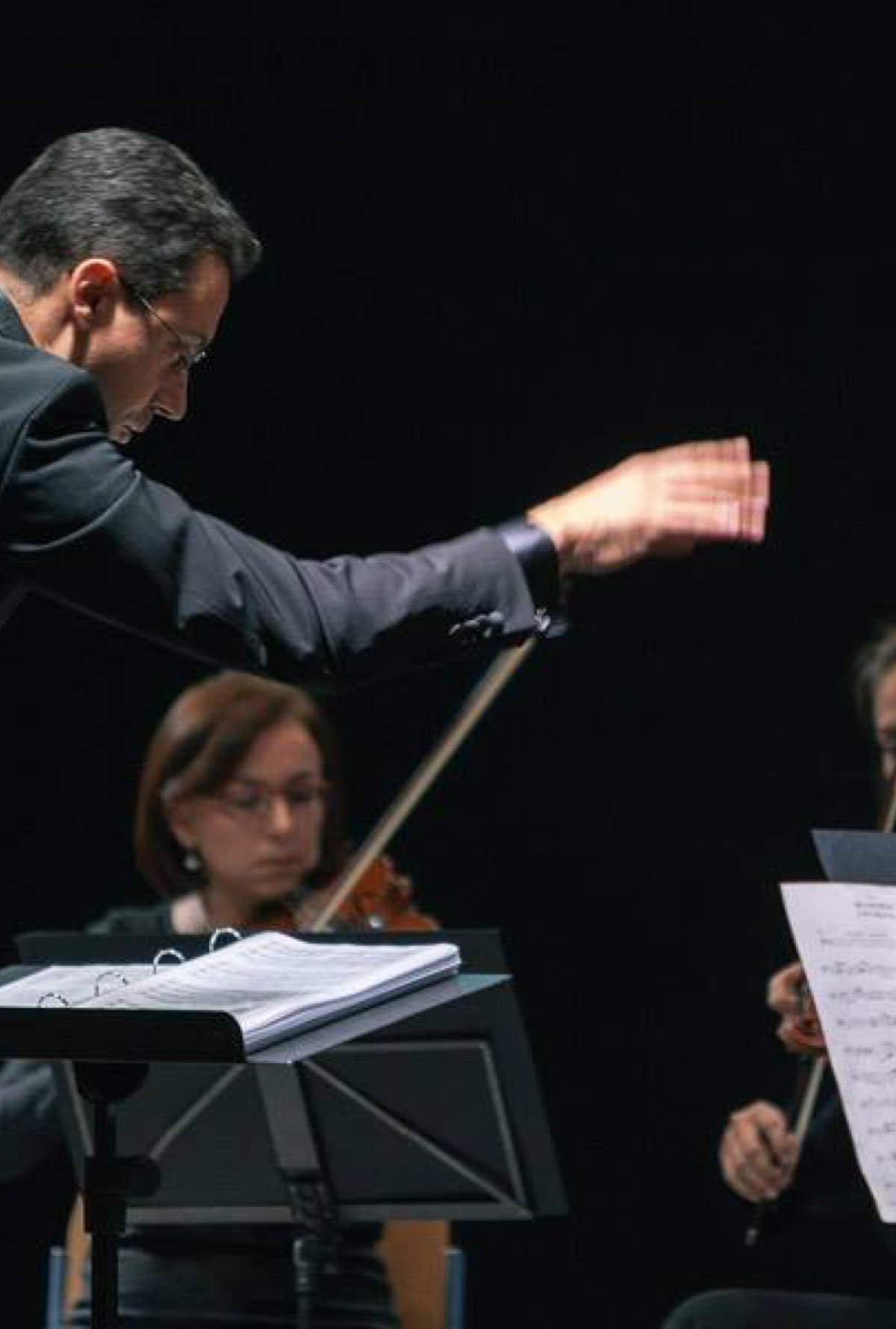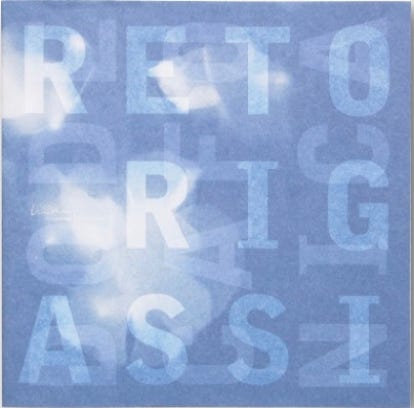
“(…) Non-Sound Rather than Nothing
The core of Expressionism that is found in the subject leads man along the path of solitude and loss; he becomes the victim of an inner conflict poised between a lack of meaning and the need to take ‘a step forward’.
Surprise is the element that fuels the artist. Schönberg experienced the element of suprise when he envisioned sound shining as though it came from the world of silence: a non-sound rather than nothing, something that can only be perceived and experienced.
This conception marked the start of a radical turnaround for twentieth-century music. Schönberg was aware of the fact that a rather serious problem emerged from this experience: that of attributing meaning to music by transforming it into an artistic expression.
Superhuman energy was required in order to reduce the artwork to the bare minimum, which Schönberg worked on for many years with a vast range of sound materials. By considering art to be the projection of subjective emotion, a channel for the sentiments
90 and irrational forces that agitate man, Schönberg himself said that art was not born from
I can but from I must. The artist does not invent; rather, he observes what already exists inside and moves on its own. There is no freedom in the essential of what is necessary, even if it is unpredictable. Devoid of sentimentalism, objectivism, and artistic license, Schönberg believed that music should not be decorative – it must be true. (…)”
“(…) Il non-suono invece che il nulla
Il centro dell’Espressionismo che si trova nel soggetto, conduce l’uomo sulla via della solitudine, dello smarrimento, vittima di un conflitto interiore tra la mancanza di senso e il dovere di fare “un passo avanti”.
L’elemento di cui si nutre un’artista è la sopresa. Schönberg vive l’elemento a sorpresa vedendo brillare il suono come se provenisse dai mondi del silenzio: un non-suono anziché il nulla; un qualcosa che può essere solo percepito e vissuto.
Una concezione che segna l’inizio di un radicale cambiamento per la musica del Novecento.
Schönberg è consapevole che da questa esperienza sorge un problema assai serio: dare un senso alla musica trasformandola in espressione artistica.
Per ridurre all’essenziale l’opera d’arte su cui Schönberg ha operato per molti anni, con una vastissima gamma di materiale sonoro, occorre un’energia sovrumana. Considerando l’arte come proiezione dell’emozione soggettiva, veicolo dei sentimenti e delle forze irrazionali che agitano l’uomo, Schönberg stesso dice che l’arte non nasce dal posso ma dal devo. L’artista non inventa, ma osserva ciò che esiste già nell’interiorità e si muove da sé. Non c’è nessuna libertà nell’essenziale in quanto necessario, anche se imprevedibile. Priva di sentimentalismi, oggettivismo e licenze artistiche, per Schönberg la musica non deve ornare ma deve essere vera. (…)”

The full text is available to / Il testo integrale è disponibile da:
“Reto Rigassi. Dodecafonica”
2015
Contributi di: Tiziana Lotti Tramezzani; Adriano Martignoni; Alessandro Benazzo
Italiano e inglese
109 pagine
PURCHASE / ACQUISTA:
MANAGEMENT: info@alessandrobenazzo.com
Copyright © Alessandro Benazzo 2024


